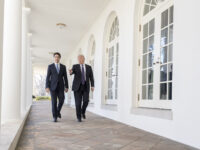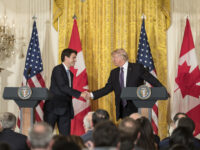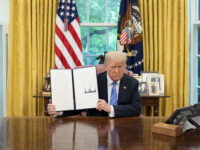The trade battle between Canada and the U.S. took a brief break last week as hours before the Trump tariffs were scheduled to take effect, President Trump agreed to a 30 day delay in return for various border measures. That brought a sigh of relief but no real sense that the issue is over. Indeed, quite the opposite – as future battles over tariffs and other measures appear very likely. Professor Richard Gold of McGill University’s Faculty of Law specializes in intellectual property. On last week’s Law Bytes episode, I referenced his proposal to consider suspending patents in key sectors such as pharmaceuticals and AI as a mechanism to counter US pressure. He joins me on the Law Bytes podcast to expand on his idea, explaining why there would be benefits for Canadian firms and frustration on U.S. firms that could spark domestic support to counter potential measures targeting Canada.
Post Tagged with: "trump"
The Law Bytes Podcast, Episode 225: How Canada Can Leverage Digital Policy to Retaliate Against Trump’s Tariffs
Canada now finds itself in economic war with the United States as President Donald Trump has levied a 25% tariff on all Canadian goods (10% for energy), which are scheduled to start on Tuesday. In response, Canada will levy retaliatory tariffs valued at $155 billion with $30 billion coming this week and another $125 billion in several weeks time. It is seemingly impossible to make sense of this deliberate targeting of an ally and claims this is linked to fentanyl that crosses the Canadian border into the U.S. doesn’t add up. Should this escalate further, the prospect of additional measures seem possible and that is where digital policy may come in. This week’s Law Bytes podcast examines the potential role of digital policy in support of retaliation against the Trump tariffs, including both defensive and offensive measures.
The Law Bytes Podcast, Episode 224: Why Prorogation and Donald Trump Spell the End of an Era in Canadian Digital Policy
A lot has happened over the past six weeks since the last Law Bytes episode that provided a year-end review. TikTok briefly went offline in the US, Meta changed its content moderation policies in a major shift designed to curry favour with Donald Trump, Amazon announced it is laying off all of its Quebec-based employees, and Bell obtained an expansive court blocking order covering copycat sites to name just a few developments. Future episodes will dive into these issues but for the moment, the biggest story for podcast devoted to digital policy from a Canadian perspective is government’s decision to prorogue Parliament on January 6th and the inauguration of Donald Trump two weeks later on January 20th. Those two weeks effectively mark the end of the past five years of Canadian digital policy. Having devoted multiple episodes to various bills and laws, the bills are dead due to prorogation and many of the laws seem likely to die due to Donald Trump. This week’s Law Bytes podcast takes a closer look at what just happened and will consider what lies ahead in next week’s episode.
Why Years of Canadian Digital Policy Is Either Dead (Prorogation) or Likely to Die (Trump)
The Canadian political and business communities are unsurprisingly focused on the prospect of U.S. President Donald Trump instituting 25% tariffs on Canadian goods and services. The threat of tariffs, which could spark a retaliatory response by Canada and fuel a damaging trade war, would likely cause serious harm to the Canadian economy. But tariffs aren’t the only story arising from new Trump actions in his first day in office. Amidst the many executive orders signed on day one are several with significant implications for Canadian law, particularly Canadian digital policies such as the digital services tax, mandated streaming payments arising from Bill C-11, and mandated payments for news links due to Bill C-18. When combined the government’s decision to prorogue Parliament earlier this month, the results of years of Canadian digital laws and policies now largely fall into two groups: those that have died due to prorogation and those that are likely to die due to Donald Trump.











